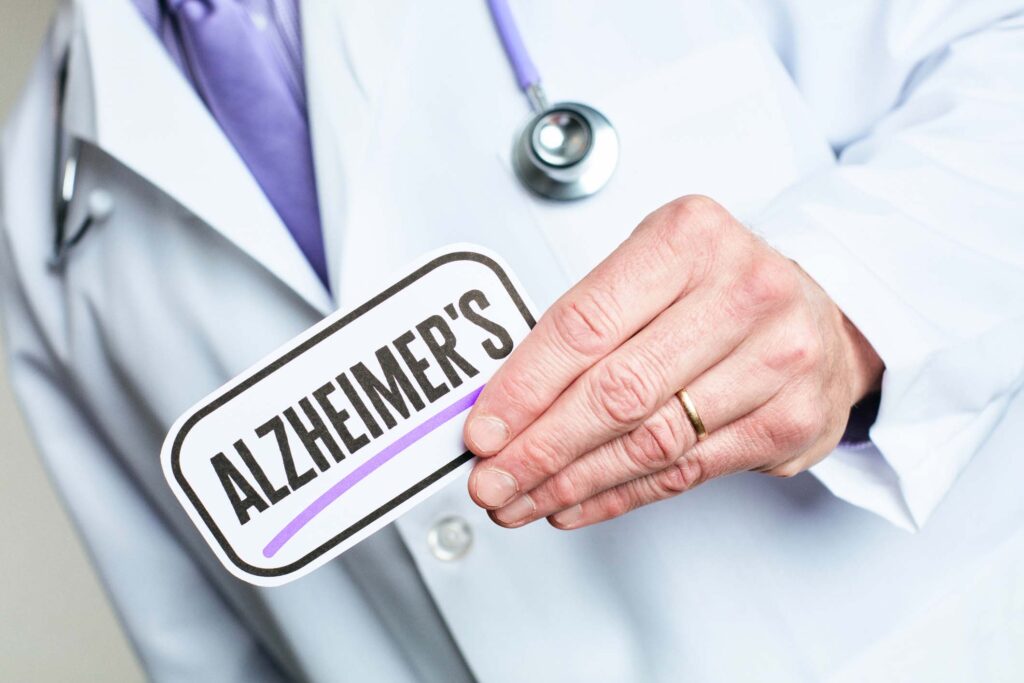
(June 2, 2025, DuBois, PA) Nearly 7 million Americans are living with Alzheimer’s, and it is the leading cause of dementia, a broad term for significant memory loss and cognitive decline that disrupts daily life. While forgetfulness can become more common as we age, Alzheimer’s is not a normal part of the aging process. Unlike typical age-related memory issues, Alzheimer’s slowly destroys memory and cognitive skills, eventually leading to the inability to carry out simple tasks.
What is Alzheimer’s?
“Alzheimer’s is a progressive brain disorder marked by the buildup of specific proteins, leading to brain cell damage and shrinkage,” said James Pacelli, MD, a neurologist with Penn Highlands Neurology in DuBois. “While the exact causes of Alzheimer’s are not fully understood, in most people it is likely the result of a combination of genetic, lifestyle and environmental factors that affect the brain over time.”
Scientists believe that it begins with changes in the brain that can occur a decade or more before symptoms appear. Toxic buildups of proteins, such as amyloid plaques and tau tangles, cause neurons to stop functioning, lose connections and die. Early damage occurs in memory-related areas like the hippocampus and entorhinal cortex, but as the disease progresses, it spreads to other brain regions, leading to significant brain shrinkage by the final stages.
What are the symptoms?
Memory loss is the primary symptom of Alzheimer’s. It is a progressive disease in which dementia symptoms worsen gradually over several years. In the early stages, memory loss is mild. Early signs include difficulty recalling recent events or conversations. As the disease advances, memory problems worsen, individuals lose the ability to engage in conversation or respond to their surroundings and it begins to interfere with daily functioning.
Symptoms of Alzheimer’s may include:
- Repeat statements and questions frequently
- Forget conversations, appointments or events
- Misplace items, often in illogical places
- Become disoriented in familiar locations
- Forget the names of family members and common objects
- Struggle to find the right words, express their thoughts or engage in conversations
“While people with normal age-related memory issues may occasionally have trouble finding the right word, those with Alzheimer’s often find it challenging to follow or participate in conversations,” said Dr. Pacelli. “They may repeat themselves or pause in the middle of a discussion and be unsure how to continue. They may struggle with vocabulary, have difficulty naming familiar objects or use incorrect names.”
In addition, many individuals with Alzheimer’s may experience mood and personality changes, such as confusion, paranoia, depression, fear or anxiety.
When should you see a provider?
Several conditions can cause memory loss or other dementia-like symptoms, and some are treatable. If you are worried about your memory or cognitive abilities, it is important to consult a healthcare professional who can conduct tests to determine the degree of memory loss and diagnose the cause. If you become concerned about the memory and cognitive skills of a family member or friend, consider discussing your concerns with them and suggest visiting a healthcare professional together.
Penn Highlands’ expert neurology specialists help improve the quality of life for patients suffering from disorders of the brain and nervous system, including Parkinson’s, Alzheimer’s, stroke, multiple sclerosis, brain injuries, sleep disorders, migraines and much more. To learn more, visit www.phhealthcare.org/neurology.
###
Penn Highlands Healthcare was officially formed in 2011 and is comprised of nine hospitals. Penn Highlands Brookville, Penn Highlands Clearfield, Penn Highlands Connellsville, Penn Highlands DuBois, Penn Highlands Elk, Penn Highlands Huntingdon, Penn Highlands Mon Valley, Penn Highlands Tyrone have served area communities for the past 100+ years. Penn Highlands State College is a new state-of-the-art hospital that opened in 2024. The health system’s business continuum also includes a home care agency, long-term care facilities and residential senior living communities, as well as durable medical equipment companies and retail pharmacies.
Penn Highlands Healthcare has evolved into an organization with approximately 6,200 employees in 150+ locations throughout 26 counties in Pennsylvania that include community medical buildings, outpatient facilities, surgery centers and physician practices. The facilities have a total of 1,396 inpatient, skilled nursing and personal care beds. The system, which has 849 physicians and 427 advanced practice providers on staff, offers a wide range of care and treatments with specialty units for cancer, cardiovascular/thoracic, neurosurgery, pulmonology, neonatal and high-risk pregnancy patients. Being focused on what is important – patients and families – makes Penn Highlands Healthcare a great choice for healthcare in the region.

